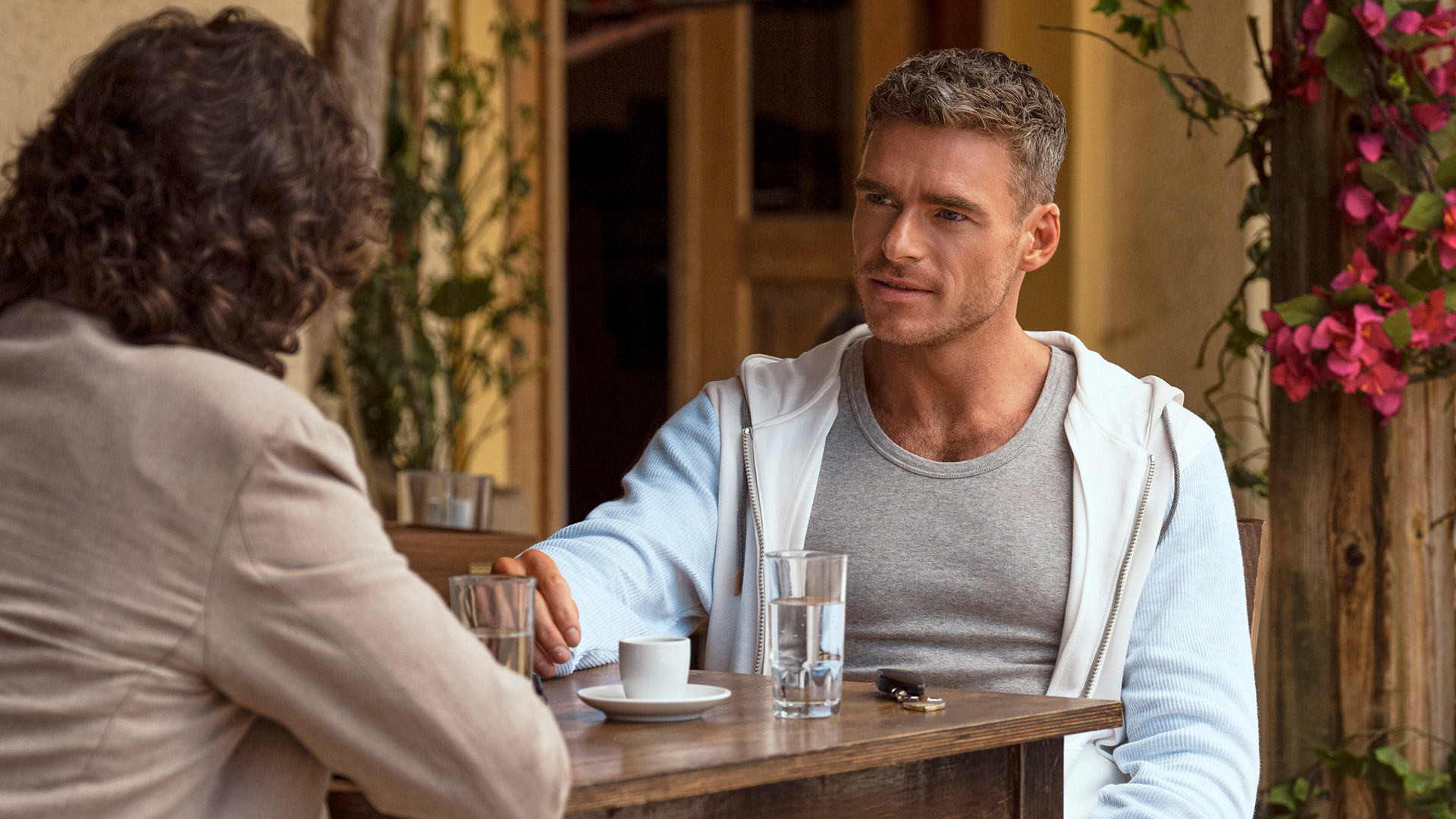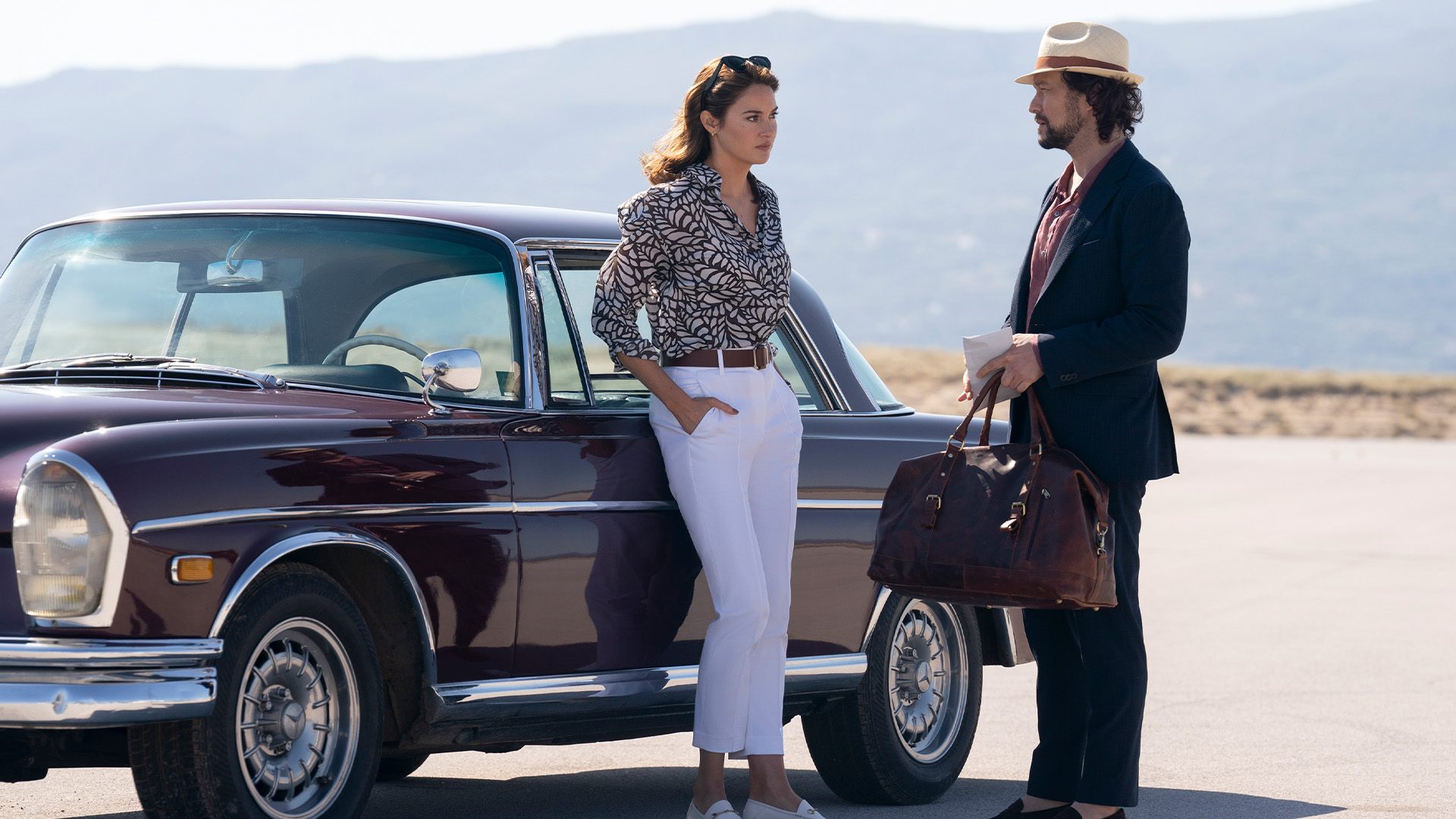Joseph Gordon-Levitt, Shailene Woodley and Richard Madden star in sun-drenched noir Killer Heat
Acts of betrayal don’t look any better in the Mediterranean sun – even if this new Jo Nesbø adaptation itself does.


An American private investigator unravels a mysterious death in Killer Heat – streaming on Prime Video. Acts of betrayal don’t look any better in the Mediterranean sun, says Steve Newall – even if this new Jo Nesbø adaptation itself does.
Not all murder mysteries take place in the shadows. The killer doesn’t have to be Colonel Mustard in the musty library with a candlestick; a private dick doesn’t need to watch a dame sashay into his office, smoke illuminated by neon coming through the blinds. Even noir deserves sunshine sometimes—in the case of Killer Heat, its setting is Greece’s bright and beautiful Crete.
New to Prime Video, Killer Heat is the feature length adaptation of a short story by (predominantly crime) author Jo Nesbø—whose work has come to the screen previously in the form of Headhunters, The Snowman and, um, Doctor Proctor’s Fart Powder, among other Nesbø adaptations. The wildly successful Nesbø has been prolific since the late 90s, hitting total worldwide sales of a staggering 50 million copies back in 2021 (presumably that’s when he stopped counting…).
Nesbø’s title for this short story was The Jealousy Man—an unwieldy name for a film, but one that captures the key emotion powering the narrative of Killer Heat, as it has many a noir before it. Joseph Gordon-Levitt stars, seen before he’s heard via a weary private detective’s voiceover as the film opens. The actor’s on familiar turf here, having first dabbled in neo-noir way back in 2005, in Rian Johnson’s feature debut Brick.

Killer Heat doesn’t play with the genre in the same way as Johnson’s repeated revisits of it—while it enjoys staying one step or twist ahead of the viewer, there’s something pleasant about how straightforward this story is, free of meta embellishments. It’s a reminder that sometimes the journey from short story to screenplay is a more straightforward one than deciding what to jettison from the expansive form of a novel.
While we’re hearing Gordon-Levitt as the film opens, we’re seeing Richard Madden (Citadel, Game of Thrones), free climbing his way up a cliff face. “There’s that old Greek myth about the guy who flew too high,” Gordon-Levitt’s gumshoe intones: “Icarus was his name”. Well, there’s also this thing called foreshadowing, and so it comes as very little surprise that moments later, Madden’s character is falling to his death.
Perhaps that’s not fair. It is a surprise to lose one of a film’s main characters in its opening sequence. Is the film a flashback? A premonition? A record scratch freeze frame “bet you’re wondering how I got here” moment?
As storytelling fortune would have it, and Gordon-Levitt’s Nick Bali soon discovers, Madden is playing identical twins here—Leo and Elias Vardakis, born into a powerful family of shipping magnates. The family is above the law and unchallengeable, the mythic metaphors appropriate for people who almost have the power of gods themselves—rich, really rich, as Bali tells us, running the island through violence and extortion.
So why is an expat P.I., originally from New York, coming to Crete to investigate an accidental death? The answer is waiting for Bali when he disembarks from his flight—Leo sister-in-law Penelope (Shailene Woodley). A friend of Leo’s before meeting and marrying his brother Elias, Penelope is suspicious of her old friend’s death, and wants answers. And so the triangular shape of a noir begins to come into focus…
Fidelity was one of the key themes of the mythic Penelope, wife of Greek hero Odysseus, so it’s a character name that lends itself well to something originally titled The Jealousy Man. As we discover throughout the film, jealousy is an emotion that motivates not just suspects, but the film’s hero too—the path that’s brought Bali to Europe, leaving a life and child behind in New York, involves a betrayal that fits his case.
Bali’s marriage is told in flashback, and we learn more about his disintegrating relationship with wife Monique in parallel to the detective putting the pieces of this case together. By the time Bali is done in Crete, he’ll have unravelled family secrets, scrapped with heavies, and defied death—but to explore this further here would spoil and defeat the purpose of Killer Heat’s unfurling narrative.
Suffice to say, there are parallels in both Bali’s story and the Vardakis family’s. And Crete offers a beautiful, sundrenched backdrop to digging around in the shadows of the past. If there’s one thing I can share, though, it’s that betrayal doesn’t look any better in the Mediterranean sun—even if a film does.























